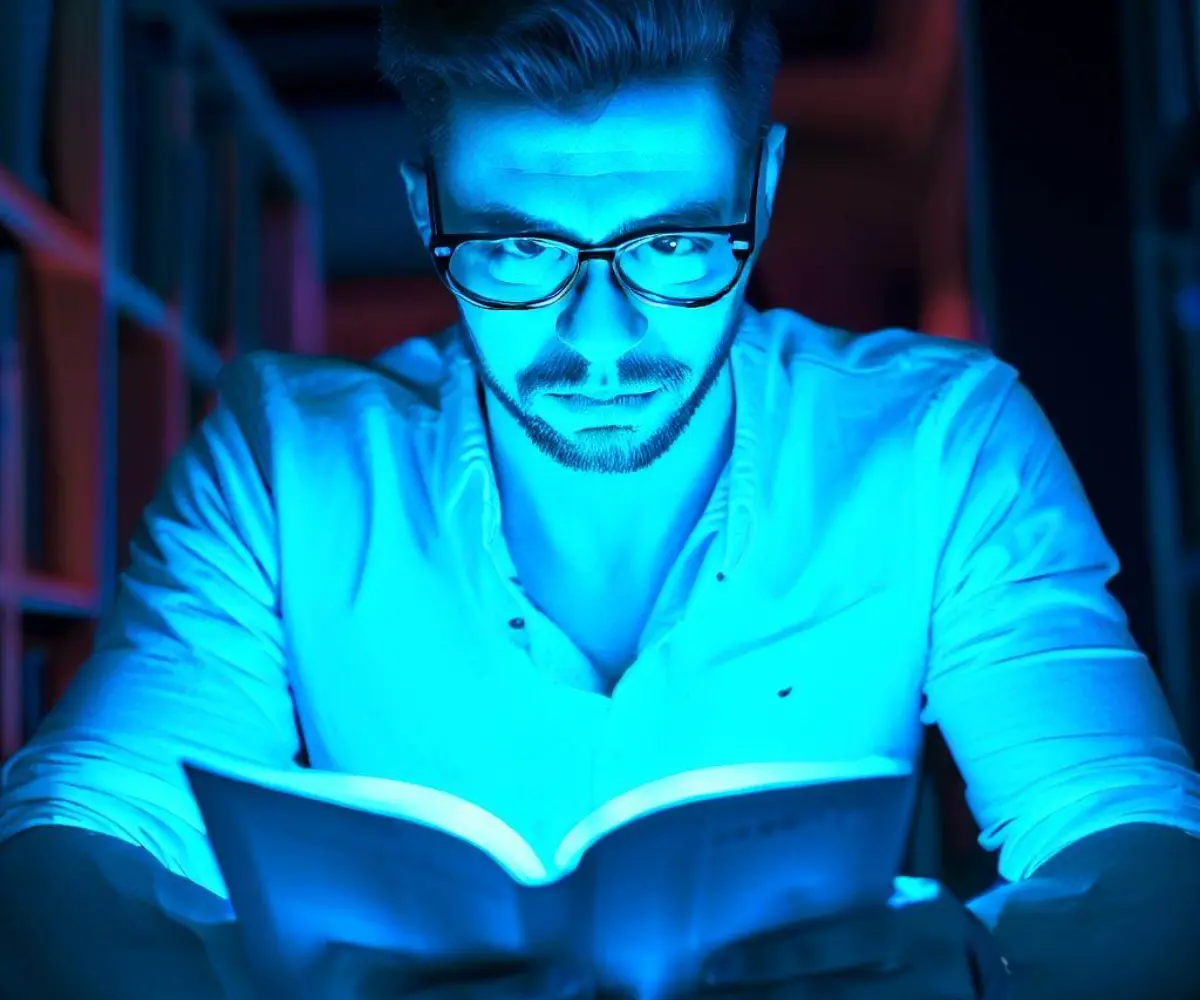Can You Use Blue Light Glasses for Reading Books?
Yes, you can use blue light glasses for reading books. Blue light glasses are designed to filter out high energy visible (HEV) blue light emitted from digital devices like phones, tablets, and computer screens. While blue light glasses reduce exposure to blue light from screens, they can also be beneficial for reading books.
How Blue Light Glasses Work for Reading
Topics Covered In This Article
Blue light glasses contain lenses treated with a special coating that blocks or filters HEV blue light wavelengths between 400-500 nm. By filtering out the high energy blue light, the glasses help prevent eye strain and other symptoms associated with overexposure to blue light, such as headaches, fatigue, and trouble sleeping.
When reading books, blue light is emitted not from pixel-based displays but from the white pages of the book reflecting ambient light. Prolonged reading causes eye strain due to focusing fatigue, reduced blink rate, and exposure to light. Blue light glasses can help by filtering out the blue light emitted from book pages, reducing strain on the eyes.
Related: How to Tell If Glasses Block Blue Light
Benefits of Blue Light Glasses for Reading
Here are some of the benefits of using blue light glasses for reading books:
- Reduce eye strain and fatigue – The lenses filter out blue light that can cause eye strain after prolonged reading sessions.
- Decrease headaches – Blue light exposure can trigger headaches. Filtering out blue light makes reading more comfortable.
- Improve sleep – Blue light suppression may help regulate circadian rhythms and melatonin production for better sleep.
- Enhance focus – Lower blue light levels help you stay focused and attentive during reading.
- Protect long-term eye health – Reducing exposure to high-energy blue light protects the eyes from photochemical retinal damage over time.
Considerations When Using Blue Light Glasses for Books
If you are thinking about using blue light glasses for reading, keep these tips in mind:
- Get glasses with just enough blue light filtration for comfort – Excessive blue light blocking can distort color perception and reduce contrast.
- Use yellow-tinted or amber lenses – These hues block blue light while maintaining natural color rendition.
- Try lower magnification prescriptions – Minimized lenses maximize undistorted viewing zones for reading.
- Adjust age of wear – Younger readers may not need as much blue light filtering as older readers.
- Take breaks – Follow the 20-20-20 rule by looking away every 20 minutes for 20 seconds at something 20 feet away.
Best Blue Light Glasses for Reading
Here are some top-rated blue light blocking glasses for reading books and other close work:
- Felix Gray Miller – Stylish wayfarer-style frames with subtly tinted amber lenses.
- Cyxus Blue Light Filter Glasses – Classic oval lenses that reduce 90% of blue light.
- Gamma Ray FlexLite – Lightweight wraparound frames with minimal blue light tint.
- TIJN Blue Light Blocking Glasses – Bold, rectangular frames with advanced blue light filtration.
- Prospek Premium Computer Glasses – High end designer frames with premium optical lenses.
Blue Light Glasses vs. Reading Glasses
While blue light glasses and reading glasses both aim to make reading more comfortable, there are some differences:
- Purpose – Reading glasses correct refractive errors like presbyopia while blue light glasses reduce blue light exposure.
- Strength – Reading glasses have magnifying lenses measured in diopters. Blue light glasses do not magnify.
- Lens material – Many reading glasses have plastic lenses. Blue light lenses are usually glass with special coatings.
- Coverage – Reading glasses sit lower on the nose. Blue light glasses surround more of the eyes.
- Blue light filtration – Reading glasses do not block blue light. Blue light glasses filter out high energy blue light.
You can even get glasses specially designed for both reading magnification AND blue light reduction for maximum reading comfort.
Frequently Asked Questions
Here are some additional focused FAQs related to the keyword “can you use blue light glasses for reading books”:
Frequently Asked Questions
Do blue light glasses help you read faster?
No, blue light glasses do not directly help you read faster. They reduce eye strain so you can focus for longer, but do not improve reading speed.
Should I get computer glasses or reading glasses?
If you mainly use digital devices, get computer glasses. For reading print books, reading glasses specifically made for blue light could be better.
Do blue light glasses come in bifocals or progressives?
Yes, you can get blue light filtering lenses in bifocal or progressive styles to allow clear near and far vision correction.
Do blue light glasses help when studying books?
Blue light glasses are useful when studying textbooks for long hours by reducing eye fatigue and headaches from close reading.
Will blue light glasses help me proofread books?
Blue light glasses can make proofreading books more comfortable by decreasing eye strain, allowing you to do detailed work for longer periods.
Bottom Line: Can You Use Blue Light Glasses for Reading Books?
Blue light glasses are a great option for reading books comfortably for extended periods by reducing exposure to high energy blue light. The right pair can decrease eye strain and headaches, improve sleep, and help you stay focused during reading sessions. There are many stylish and effective blue light blocking glasses to choose from that make reading books more enjoyable.

Walter Hendricks is a well-known authority in the eyewear industry, specializing in a diverse range of products such as gaming glasses, swimming goggles, sunglasses, eyeglasses, computer glasses, and fashionable daily-wear eyewear.
Hendricks believes in empowering his readers with in-depth information to help them choose the right glasses that blend functionality and fashion, catering to their unique lifestyle requirements.
His comprehensive reviews and informative articles provide clear insights on everything from cutting-edge gaming glasses to the latest trends in eyewear fashion. Through his work, Hendricks has proven his dedication to helping consumers make informed eyewear decisions that support both their visual needs and style preferences.

